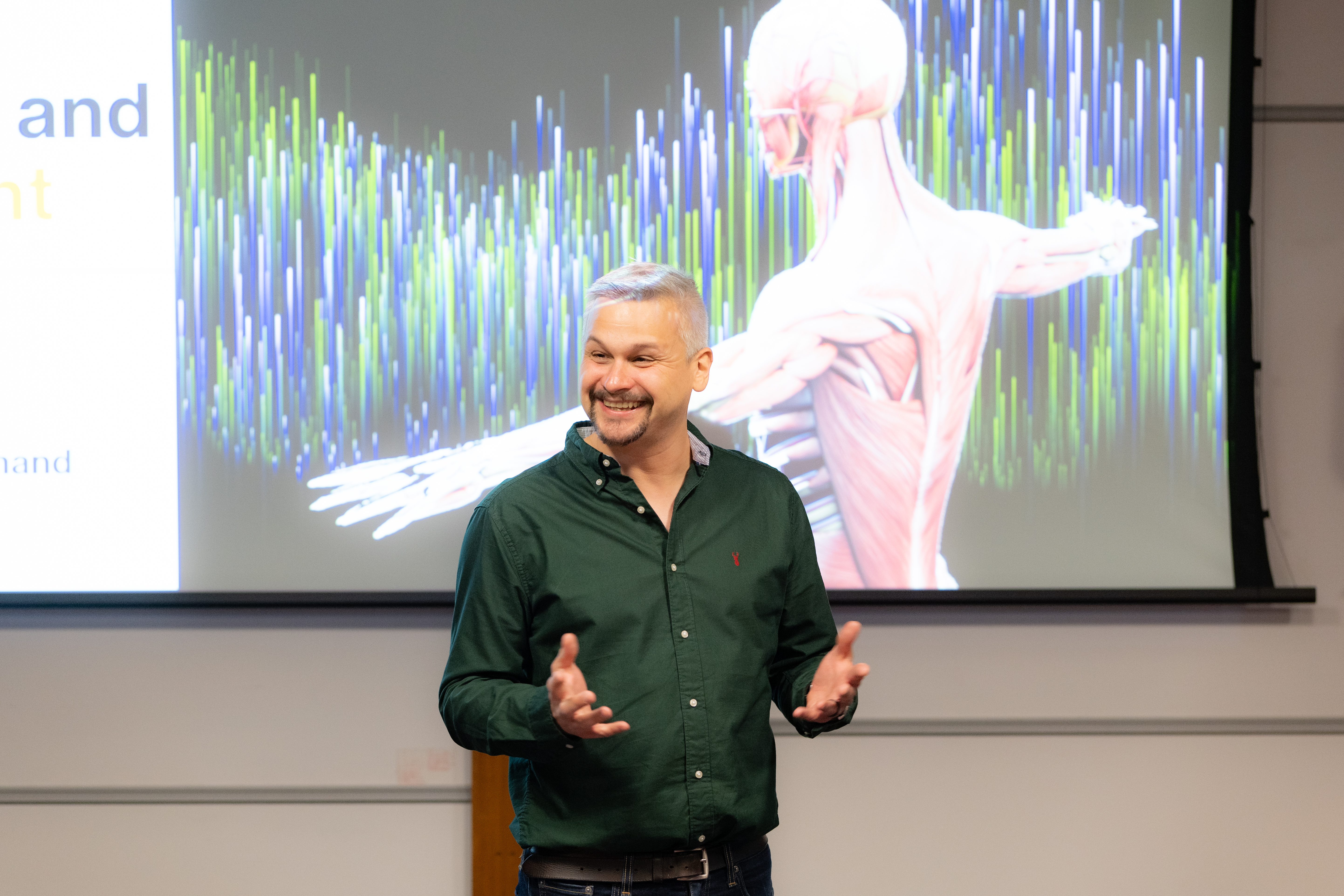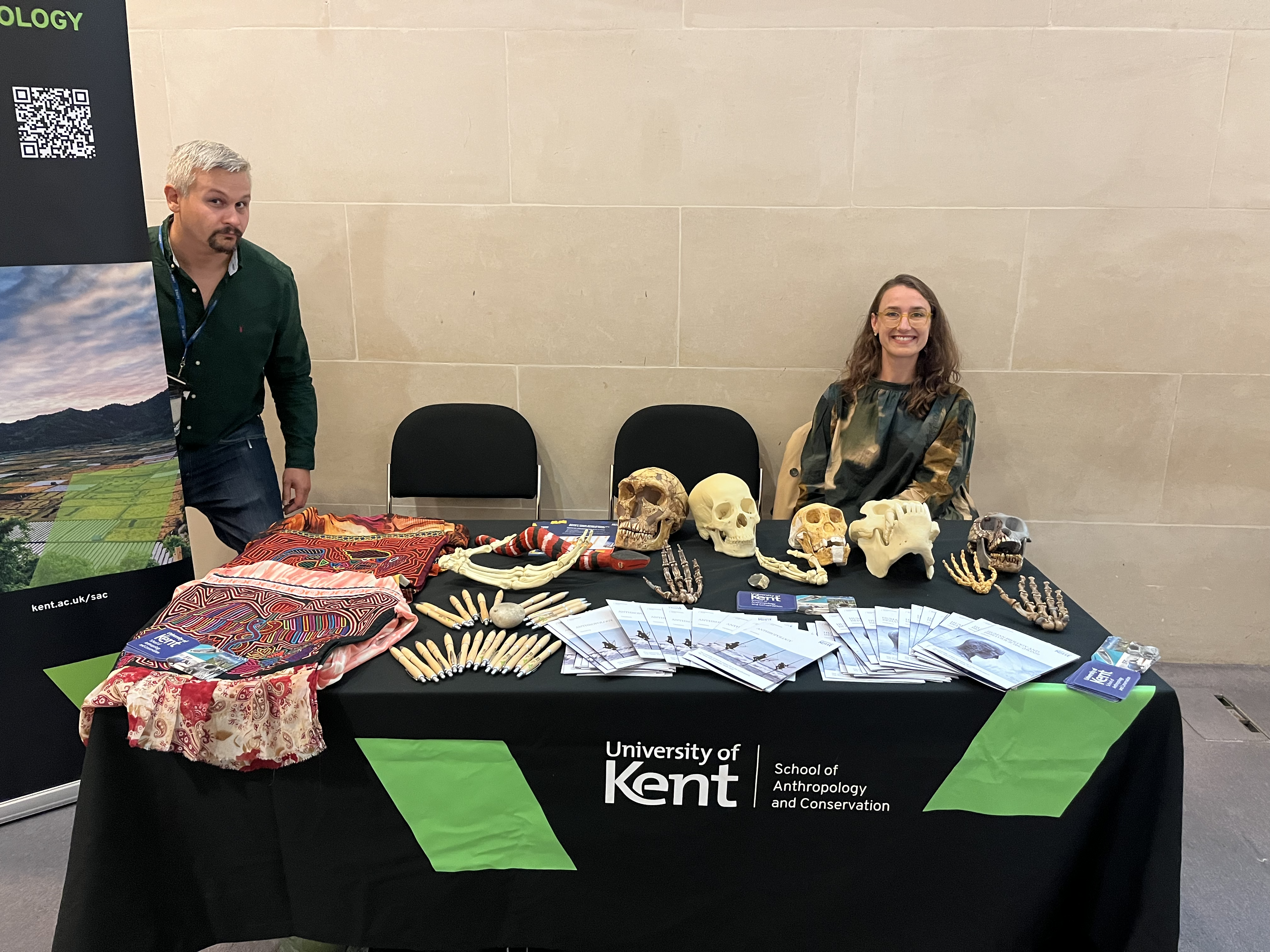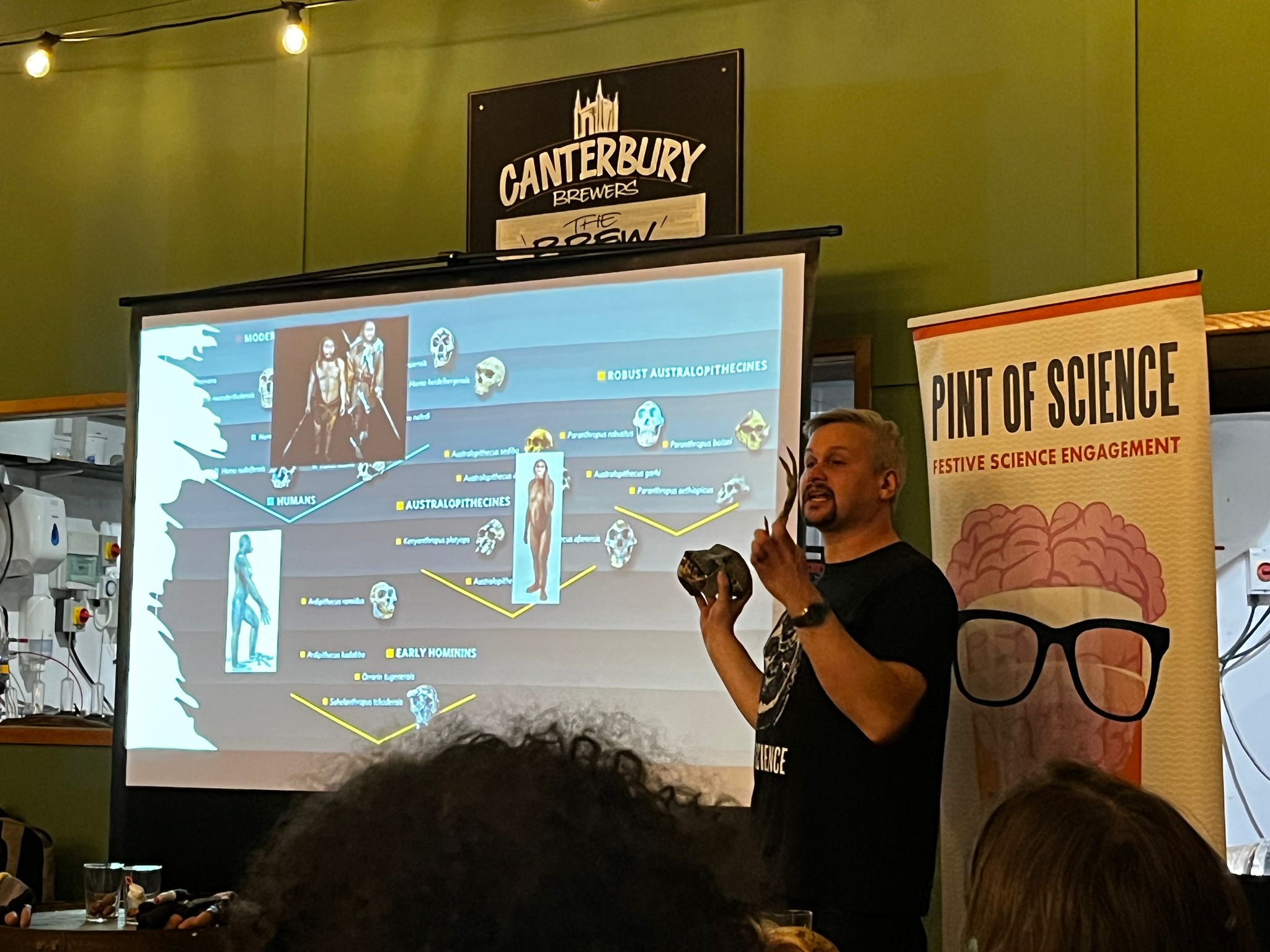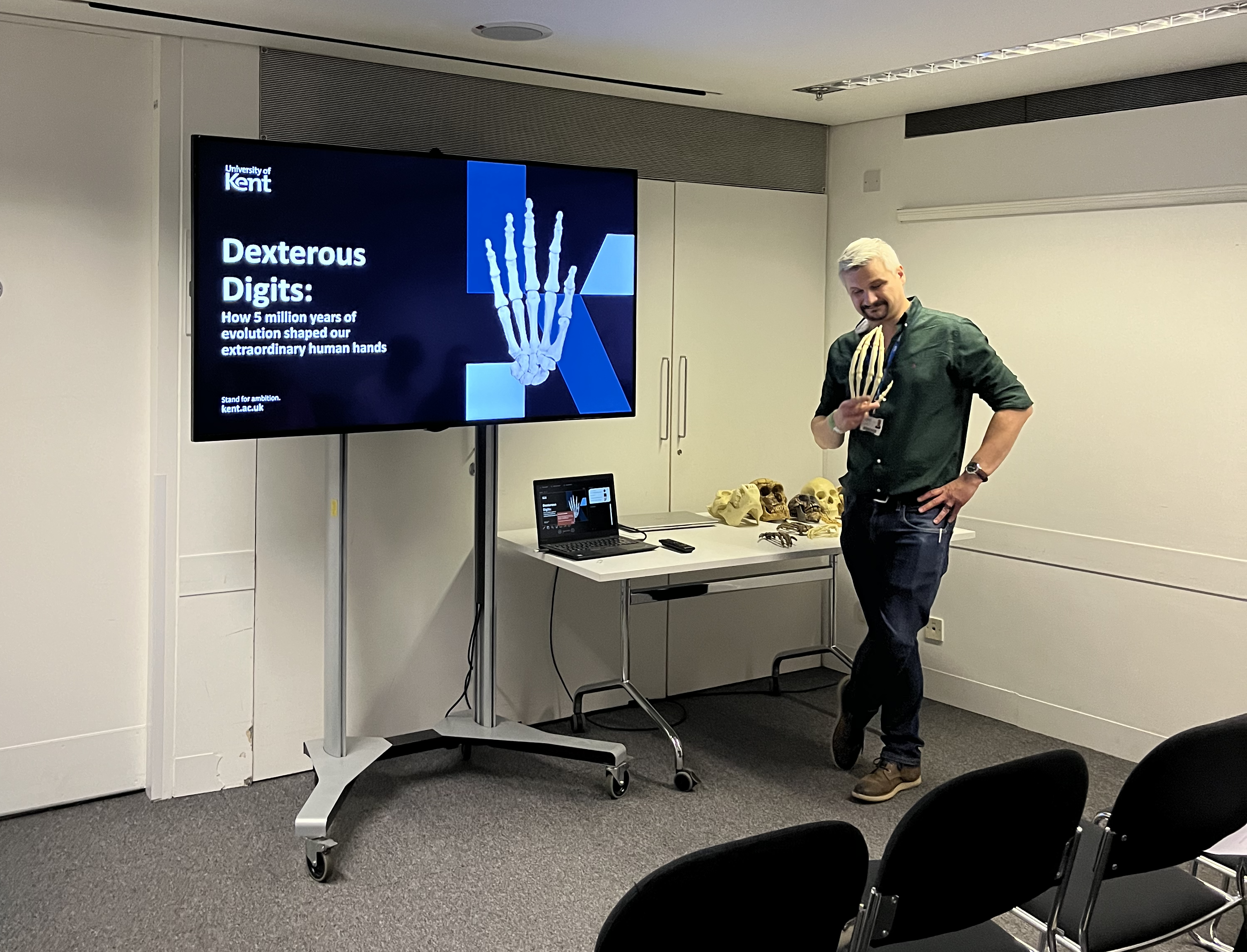
If you’re coming to study Human Biology and Behavior with us this autumn, you’ll want to get to know who will be teaching you.
Chris Dunmore is a Paleaoanthropologist working on reconstructing fossil hominin hand use during locomotion and manipulation, as well as the emergence of tool-use in our lineage. Chris came to us as a student, completing his PhD at the University of Kent in 2019, which was focused on linking internal bone morphology with the hand-use in living great apes, and is currently a Lecturer in Biological Anthropology, and the Director of the Imaging Centre for Life Sciences.
We caught up with him to ask him, what gets a Paleaoanthropologist up in the morning?
‘Linking behaviour with biology is my bread and butter. I want to know about the biological drivers that make humans tick, and how they evolved in us. That’s not to say that we don’t operate with free will but the way we behave on a daily basis can at least be partially explained using biological factors. For example, how hungry you are can determine what you do in a day; that is how you behave. We can chart the leptin pathway – a hormone that helps determine whether you feel hungry -and this will influence how your day plays out. We’ve all been ‘hangry’.
To get more evolutionary for a moment, we could talk about lower back pain. We all came from apes that used to swing in trees that had a short stiff lower back, chimpanzees still have this today. As humans are the only primate that walks on two legs, we put a lot more weight through our lumbar as most of our body sits on top of it. The consequence of this , as well as sitting on chairs a lot of the time, is that many people experience back pain today, like Sciatica. Conditions like this affect the way we walk and therefore how we behave. So, we can explain disease and behaviour today with biomechanical and evolutionary principles.
So, I suppose the answer is, I get up in the morning to understand just a little bit more about the ultimate causes of our uniquely human behaviours.’

Who would enjoy HBB?
‘Someone who is curious, interested in science, and the study of humans generally. Someone interested in HBB likes to think deeply, they are not just interested in listing facts, but in understanding and questioning the human condition. People are something that the planet is not running out of, so it’s always going to be useful to understand what makes them tick.
Anyone who enjoys a true crime podcast would also enjoy HBB, as we can use forensic techniques determine the sex or age of human remains, which is crucial for identification of victims. These techniques can also be applied to populations of the past to find out about what they ate and how they behaved on a daily basis.
A person with a curiosity for understanding the human behaviour they see all around them, as well as the proximate and ultimate causes of it, will really enjoy this degree.’

Why Kent?
‘We have the expertise, the facilities, and we care about what you want to learn.
We have an amazing fossil cast collection, one of the biggest in the U.K., and a set of biomechanics models that enable us to study anatomy right in front of us. We have one of the few CT scanners in the country that enable us to look inside bones. From that we can determine how healthy the bone was, its age, how it was used.
We’re surrounded by amazing resources such as, Howletts and Wingham Wildlife Park, both of which have apes, so our primatologists can conduct fieldtrips there regularly. We also have an amazing cast of characters here -lecturers who are student focussed, keen to teach, enthusiastic about interacting with young people, as well as being some of the leading researchers in their fields. We also have a thriving Psychology school which we collaborate with to deliver this degree course. Basically, everything that you could need to study HBB is right here at Kent!’

What should we look at to whet our appetite?
‘Try Guns Germs and Steel, A short history of everybody for the last 13,000 years by Jared Diamond
Genome: The Autobiography Of Species In 23 Chapters: The Autobiography of a Species in 23 Chapters by Matt Ridley.
All in the Mind podcast on BBC is always great to listen to and The Brain That Changes Itself: Stories of Personal Triumph from the Frontiers of Brain Science by Norman Doidge is a good introductory read (esp focussing on neuro/biology side).’
Where are you off to now?
‘I’ve got to go and scan some bones -part of a population of medieval Cantabrians, (people from Canterbury) because we’re digitally preserving them using the CT scanner… ‘
Find out more about our Human Biology and Behaviour Degree Course here.




